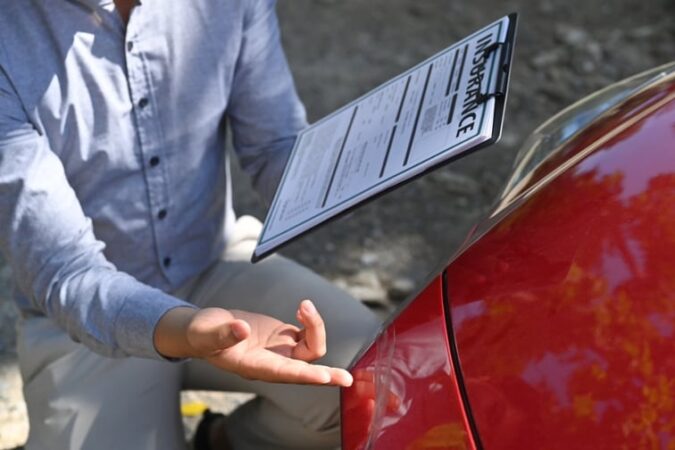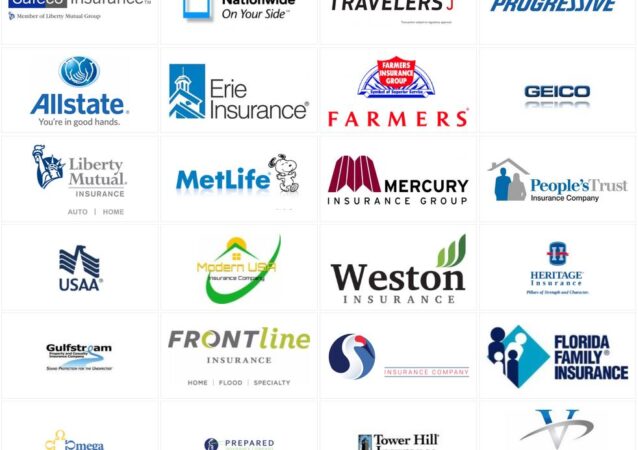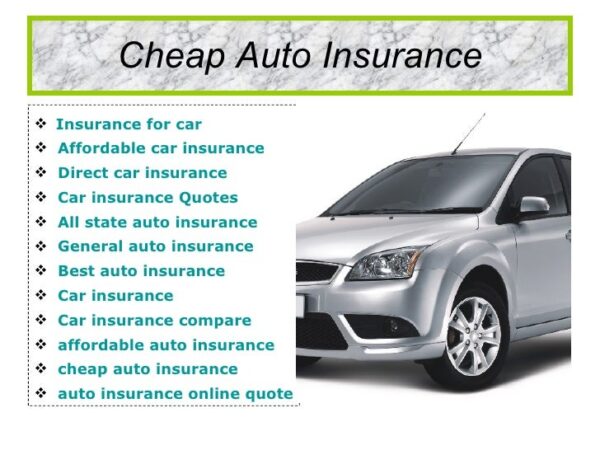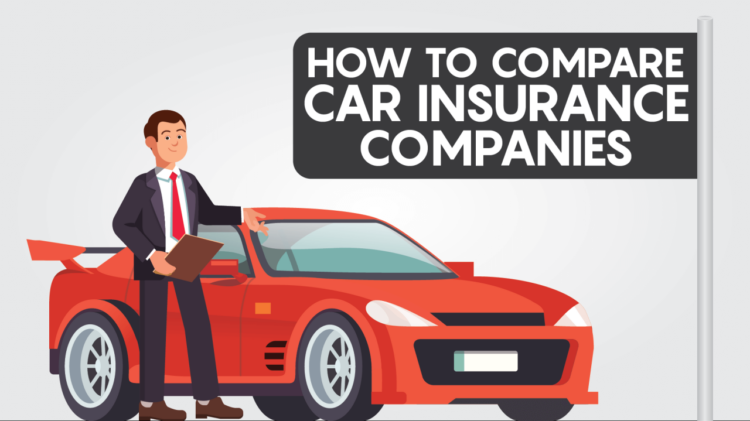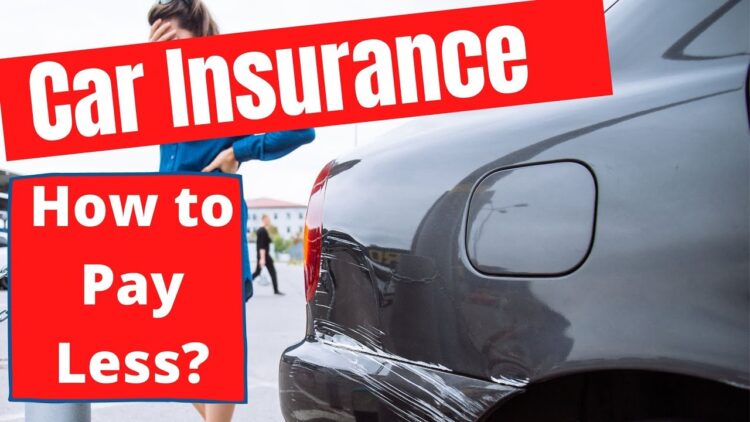
How do insurance companies value a totaled car? It’s a question that pops up when the unexpected happens – a fender bender that turns into a write-off, or a hail storm that leaves your car looking like a Swiss cheese. But how do insurance companies decide if your car is a total loss, and what factors determine the payout you receive? Let’s dive into the world of car valuations and find out.
Insurance companies have a system for determining the value of a totaled car, and it involves more than just adding up the repair costs. They consider a variety of factors, including the car’s make, model, year, mileage, condition, and even the current market value. And if your car has been in an accident before, that can also affect the valuation. Understanding how these factors play a role in determining your payout can help you navigate the process and ensure you get a fair deal.
Determining Total Loss
Insurance companies have a process for determining if a damaged vehicle is considered a total loss. This means the cost to repair the car exceeds its fair market value, making it financially unfeasible to fix.
Factors Considered in Determining Total Loss
Insurance companies use various factors to determine if a car is a total loss. These include:
- Vehicle’s Age and Mileage: Older vehicles with high mileage tend to have lower values, making them more likely to be totaled even for moderate damage.
- Market Value: Insurance companies use databases and tools to determine the vehicle’s fair market value. This value is based on factors like make, model, year, condition, mileage, and location.
- Cost of Repairs: Insurance companies will assess the damage and estimate the cost of repairs. This includes parts, labor, and any other expenses associated with the repair.
- Safety Concerns: If the damage compromises the structural integrity of the vehicle, making it unsafe to drive, it’s likely to be totaled even if the repair cost is relatively low.
Common Thresholds for Total Loss
Insurance companies often use a threshold of 75% or 80% to determine total loss. This means if the cost of repairs exceeds 75% or 80% of the vehicle’s actual cash value (ACV), it’s likely to be declared a total loss.
The cost of repairs exceeding 75% or 80% of the vehicle’s actual cash value (ACV) is a common threshold for determining total loss.
Examples of Situations Where a Car Might Be Totaled
Even if the damage appears minor, a car can be totaled in certain situations. For example:
- Structural Damage: Damage to the frame, suspension, or other critical components can compromise the vehicle’s structural integrity and lead to a total loss, even if the damage appears minor.
- Airbag Deployment: Airbag deployment often triggers a total loss declaration. This is because replacing airbags can be expensive, and the deployment might indicate more significant underlying damage.
- Flood Damage: Water damage can affect various components, leading to corrosion and electrical issues. Even if the damage appears superficial, flood damage can lead to a total loss.
- Salvage Value: In some cases, even if the cost of repairs exceeds the vehicle’s value, the car might still be repairable. However, if the salvage value of the car (what it’s worth as scrap metal) is less than the cost of repairs, it’s likely to be totaled.
Valuation Methods: How Do Insurance Companies Value A Totaled Car
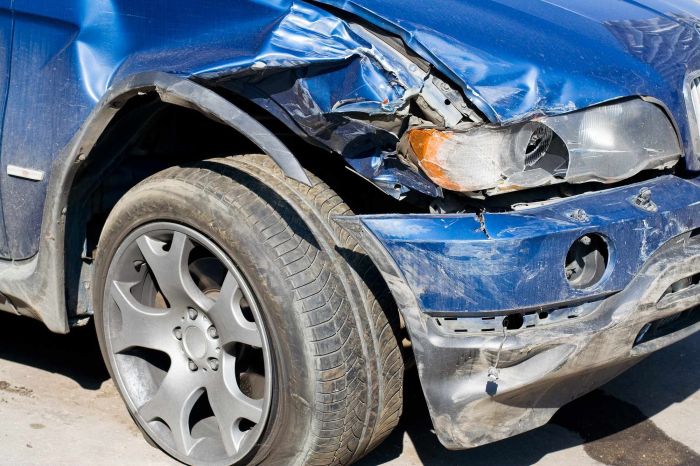
Insurance companies use various methods to determine the value of a totaled car, aiming to provide a fair settlement to the policyholder. This process involves considering the car’s market value, depreciation, and salvage value.
Market Value
Market value refers to the price a willing buyer would pay for a vehicle in its current condition. This value is influenced by several factors, including:
- Make and Model: The brand, model, and year of manufacture play a significant role in determining the car’s market value.
- Mileage: Higher mileage generally leads to lower value, as it reflects wear and tear on the vehicle.
- Condition: The overall condition, including any damage, maintenance history, and features, affects the market value.
- Location: Geographical location can influence the market value, as demand and pricing may vary.
Depreciation
Depreciation refers to the decrease in value of an asset over time. Cars depreciate rapidly, especially in the first few years. Insurance companies consider depreciation when calculating the total loss settlement.
Salvage Value
Salvage value is the estimated amount the insurance company can recover by selling the totaled car. This value is determined by factors such as the extent of damage, the vehicle’s age, and the potential for parts recovery.
Valuation Resources
Insurance companies often rely on various resources to determine the market value of a totaled car. Some common resources include:
Kelley Blue Book (KBB)
KBB is a widely recognized resource for car valuations. It provides detailed information on various makes, models, and years, including market value estimates based on condition, mileage, and location.
NADA Guides
NADA Guides is another reputable resource for car valuations. It offers similar information to KBB, providing insights into market trends and average prices for different vehicles.
Other Valuation Resources
In addition to KBB and NADA Guides, insurance companies may also utilize other resources, such as:
- Auction Data: Auction prices for similar vehicles can provide insights into market value.
- Dealer Quotes: Quotes from local dealerships can offer a benchmark for the car’s value.
- Independent Appraisers: Insurance companies may engage independent appraisers to provide an objective assessment of the car’s value.
Factors Affecting Value
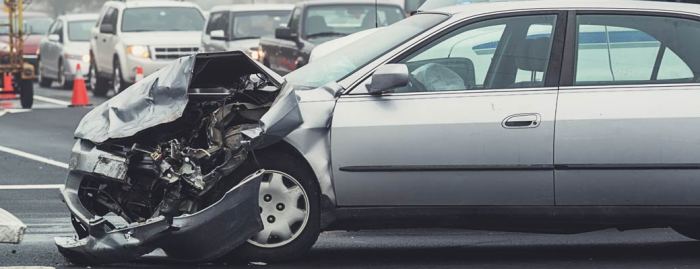
Insurance companies use a variety of factors to determine the value of a totaled car. These factors help them arrive at a fair market value, which is the amount they will pay you for your vehicle.
Factors Influencing a Car’s Value
The factors that influence a car’s value can be categorized into two main groups: inherent characteristics and external factors. Inherent characteristics are those that are inherent to the vehicle itself, while external factors are those that are external to the vehicle but can still affect its value.
Inherent Characteristics
- Make and Model: Some car brands and models are simply more popular and in demand than others. This can significantly impact their value. For example, a well-maintained Honda Civic will likely hold its value better than a similar-aged, but less popular, car.
- Year: A newer car will generally have a higher value than an older car, all other factors being equal. This is because newer cars have more modern features, better safety ratings, and often come with warranties.
- Mileage: High mileage can negatively impact a car’s value. Cars with lower mileage are generally considered to be in better condition and have more life left in them.
- Condition: The condition of a car is one of the most important factors affecting its value. A car that has been well-maintained and has no major damage will be worth more than a car that has been neglected or has been in an accident.
- Options: Certain options can increase the value of a car, such as a sunroof, leather seats, or a navigation system.
External Factors
- Market Demand: The demand for a particular car can fluctuate depending on factors such as fuel prices, economic conditions, and the availability of similar vehicles.
- Location: The location where a car is sold can also affect its value. Cars in high-demand areas may be worth more than cars in less desirable locations.
- Damage, Accidents, and Repairs: The presence of damage, accidents, or repairs can significantly impact a vehicle’s value. A car that has been in an accident or has had major repairs will generally be worth less than a similar car that has not been damaged.
Impact of Damage, Accidents, and Repairs on Car Value
Damage, accidents, and repairs can significantly impact a car’s value.
Damage
- Minor Damage: Minor damage, such as scratches or dents, can reduce the value of a car by a small amount.
- Major Damage: Major damage, such as structural damage or damage to the engine or transmission, can significantly reduce the value of a car.
Accidents
- Minor Accidents: Minor accidents, such as fender benders, may not significantly impact the value of a car if the damage is repaired properly.
- Major Accidents: Major accidents, such as rollovers or collisions with other vehicles, can significantly reduce the value of a car, even if the damage is repaired. This is because the car may have suffered structural damage or damage to its safety systems.
Repairs
- Proper Repairs: Repairs that are done properly and by a qualified mechanic will not significantly impact the value of a car.
- Improper Repairs: Improper repairs, such as using cheap parts or not fixing the problem correctly, can actually reduce the value of a car.
Impact of Various Factors on Car Value
The following table shows the impact of various factors on car value:
| Factor | Impact on Value |
|—|—|
| Make and Model | High |
| Year | High |
| Mileage | Moderate |
| Condition | High |
| Options | Moderate |
| Damage | High |
| Accidents | High |
| Repairs | Moderate |
| Market Demand | Moderate |
| Location | Moderate |
Salvage Value
When your car gets totaled, the insurance company isn’t just handing you a check for the full value. They’re also considering the potential resale value of the wreckage. This is called the salvage value, and it’s a crucial factor in determining your payout.
Determining Salvage Value
Insurance companies use a variety of methods to determine the salvage value of a totaled car. They often use a combination of factors, including the age and condition of the vehicle, the extent of damage, and the market demand for similar vehicles. Think of it like a detective figuring out the value of a stolen car, but instead of looking for fingerprints, they’re analyzing the wreckage.
Auction and Scrap Yard Involvement
The salvage process usually involves auctions and scrap yards. Here’s how it goes down:
– Auctions: Insurance companies often sell totaled cars to salvage yards or other buyers at auctions. These auctions can be online or in person, and they allow the insurance company to get the best possible price for the salvage.
– Scrap Yards: Scrap yards are often the final destination for totaled cars. They’ll dismantle the car and sell its parts for scrap metal or recycle them. It’s like a giant metal recycling center, but instead of plastic bottles, they’re dealing with car parts.
Salvage Options and Potential Returns
The potential return from salvage value depends on the condition of the car and the options available. Here’s a table comparing different salvage options and their potential returns:
| Salvage Option | Potential Return | Description |
|---|---|---|
| Whole Vehicle Sale | Highest Return | The car is sold as a whole to a salvage yard or individual buyer who can repair it. This option is most likely for cars with minimal damage. |
| Parts Sale | Moderate Return | The car is dismantled and its parts are sold individually. This is a common option for cars with significant damage, but some parts might still be usable. |
| Scrap Metal Sale | Lowest Return | The entire car is crushed and sold for scrap metal. This is the least desirable option, but it’s still better than nothing. |
Insurance Coverage
Your insurance coverage plays a major role in determining how much you’ll get for your totaled car. It’s like choosing your team in a video game – different coverage options can lead to different payouts.
Insurance policies are contracts, and they Artikel what you’re covered for and how much you’ll be paid in different scenarios. Let’s break down the main types of coverage that impact your payout.
Actual Cash Value (ACV) vs. Replacement Cost
ACV and replacement cost coverage are two major ways insurance companies calculate the value of your totaled car.
- Actual Cash Value (ACV) is the most common type of coverage. It considers the car’s fair market value at the time of the accident, taking into account factors like age, mileage, condition, and depreciation. Think of it like the price you’d get if you sold your car in its current condition. For example, if your car was worth $10,000 before the accident, but had depreciated to $7,000, that’s what you’d receive with ACV coverage.
- Replacement Cost coverage aims to replace your totaled car with a similar new vehicle. This type of coverage doesn’t factor in depreciation. So, if your car was worth $10,000 before the accident, and a comparable new car costs $15,000, you’d receive $15,000 under replacement cost coverage. However, you’ll typically have to pay a higher premium for this type of coverage.
Deductibles and Limits
Your insurance policy also has deductibles and limits that influence your payout.
- Deductible is the amount you pay out of pocket before your insurance kicks in. If your deductible is $1,000 and your totaled car is worth $10,000, you’ll receive $9,000 from your insurance company.
- Limits are the maximum amount your insurance company will pay for a claim. If your policy limit is $20,000 and your totaled car is worth $25,000, you’ll be responsible for the remaining $5,000.
Negotiation and Dispute Resolution
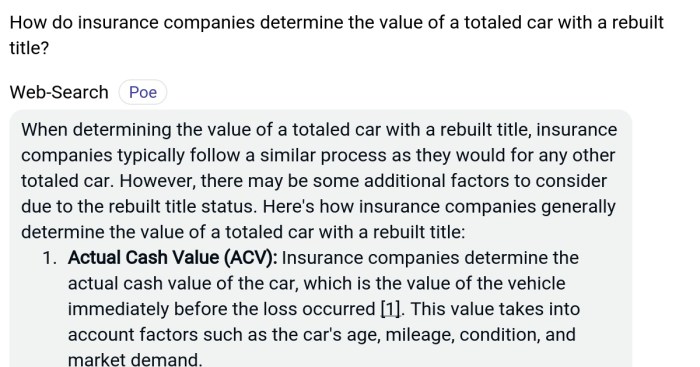
After determining a totaled car’s value, you may not agree with the insurance company’s assessment. This is where negotiation and dispute resolution come into play.
Negotiating a Fair Settlement
Negotiating a fair settlement for a totaled car involves understanding your rights as a policyholder and presenting compelling evidence to support your claim.
- Gather Supporting Documentation: Assemble all relevant documents, including repair estimates, vehicle purchase records, maintenance records, and market value comparisons from reputable sources like Kelley Blue Book or Edmunds. These documents help you justify your requested settlement amount.
- Know Your Policy: Thoroughly review your insurance policy to understand your coverage limits and any specific provisions related to total loss settlements. This knowledge empowers you to negotiate from a position of strength.
- Be Prepared to Negotiate: Insurance companies often have initial offers that may be lower than what you believe is fair. Be prepared to counteroffer with a reasonable amount based on your research and documentation.
- Stay Calm and Professional: Maintain a calm and respectful demeanor throughout the negotiation process. Avoid getting emotional or aggressive, as this can hinder your chances of reaching a mutually agreeable outcome.
Options for Policyholders, How do insurance companies value a totaled car
If you disagree with the insurance company’s valuation, you have several options available to you:
- Negotiate Further: Continue negotiating with the insurance company, presenting additional evidence or arguments to support your position. You can also request a review by a higher-level adjuster within the company.
- Mediation: Consider involving a neutral third party, like a mediator, to help facilitate a resolution. Mediators can assist in finding common ground and reaching a compromise.
- File a Complaint: If your attempts to negotiate a fair settlement fail, you can file a complaint with your state’s insurance commissioner or a consumer protection agency. These organizations can investigate your case and potentially help resolve the dispute.
- Litigation: As a last resort, you can file a lawsuit against the insurance company. This option is usually reserved for cases where the insurance company has acted in bad faith or failed to honor the terms of the policy.
Appealing an Insurance Company’s Decision
If the insurance company denies your claim or offers a settlement you find unacceptable, you have the right to appeal their decision.
- Follow the Appeal Process: Your insurance policy will Artikel the specific procedures for appealing a claim decision. Carefully follow these steps, including deadlines and required documentation.
- Submit a Written Appeal: Provide a detailed written explanation of why you disagree with the insurance company’s decision. Include supporting documentation, such as repair estimates, market value comparisons, and any other relevant information.
- Request a Review: The appeal process may involve a review by a higher-level adjuster or a panel of experts. Be prepared to present your case clearly and concisely.
- Consider Independent Valuation: If the insurance company still denies your claim, consider obtaining an independent valuation from a qualified appraiser. This report can provide further evidence to support your appeal.
Closing Summary
Knowing how insurance companies value totaled cars is crucial, especially if you’re ever in the unfortunate situation of having your car declared a total loss. Understanding the factors that influence the valuation process, and the different types of coverage available, can help you make informed decisions and potentially negotiate a better payout. So, before you sign on the dotted line, take the time to understand the details of your insurance policy and how it applies to a totaled car.
Common Queries
What if my car is declared a total loss, but I still owe money on it?
If your car is totaled, your insurance company will typically pay the actual cash value of the vehicle, minus your deductible. If you still owe money on the car, you may have to pay the difference between the insurance payout and your outstanding loan amount, known as a “gap” in coverage.
Can I negotiate with the insurance company about the value of my totaled car?
You can certainly try to negotiate with the insurance company. Be prepared to provide documentation that supports your claim, such as recent appraisals or quotes for similar vehicles. You can also consult with an independent auto appraiser to get a second opinion on the value of your car.
What happens to my totaled car after the insurance company pays me?
Once the insurance company pays you for your totaled car, they typically take possession of the vehicle. They may sell it at auction or to a salvage yard, and the proceeds from the sale can offset their payout to you.
If my car is totaled, can I get a new car instead of cash?
While insurance companies typically pay out the actual cash value of a totaled car, you may have the option to purchase a new car with the proceeds. This option may be available if you have certain types of coverage, such as replacement cost coverage, or if you’re willing to pay the difference between the payout and the cost of a new car.
